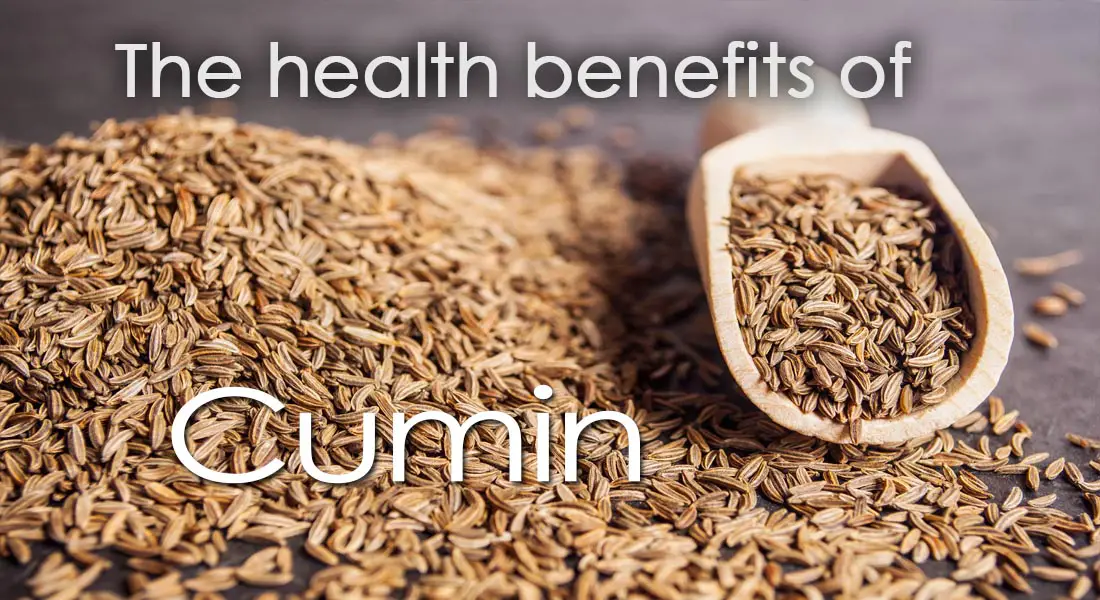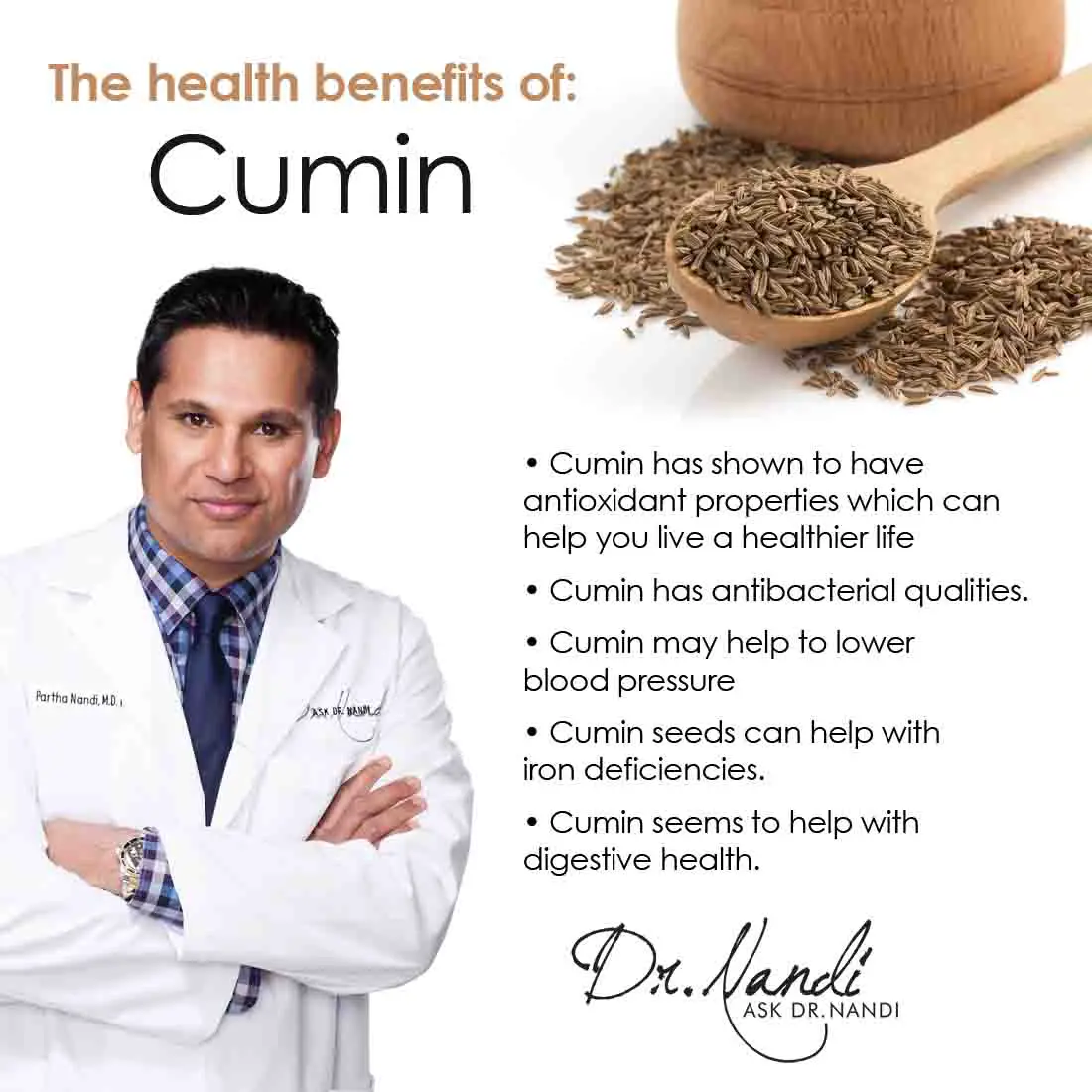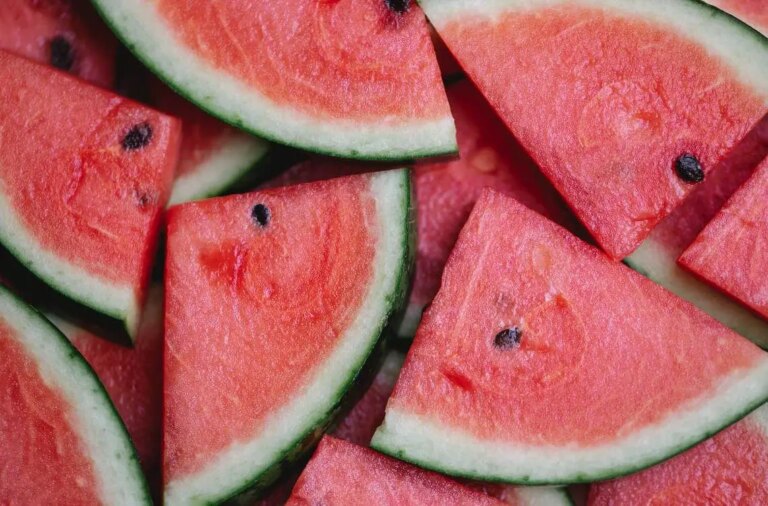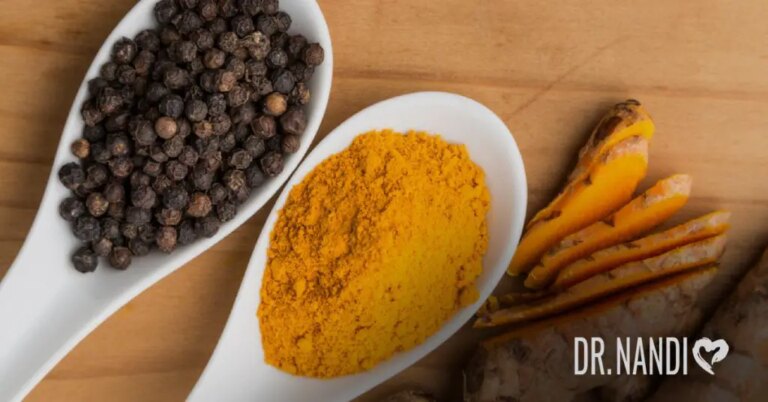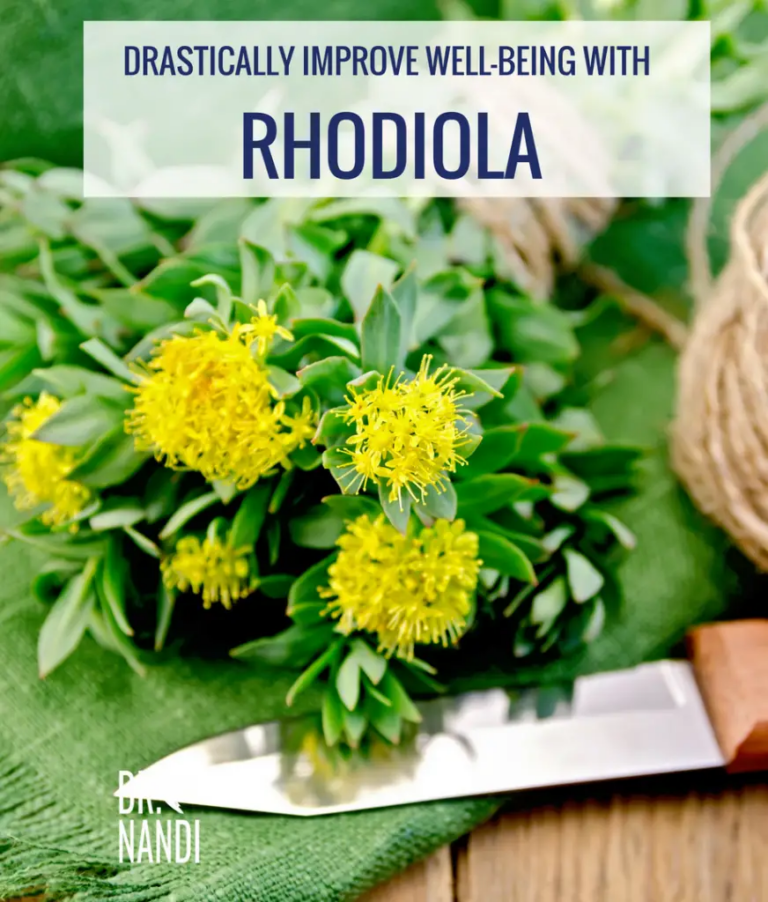Cumin is a delicious spice native to the east Mediterranean to India. It is fragrant and adds a great flavor to your dinner table but did you know that research shows that cumin is also great for your health?
Research has shown that cumin seeds may have an antioxidant property to help you live a healthier life. Cumin seeds are a great source of phytochemicals that act as antioxidants. Phytochemicals act as scavengers of free radicals that cause oxidative stress. Oxidative stress can cause cancer, inflammation, and other diseases over time. Recently, cumin has been shown to protect animals being studied from developing tumors in their stomachs or livers.
Nutritional Facts of Cumin
Both cumin and black cumin are high in minerals like iron, magnesium, calcium, and manganese. They also include some omega-3 and -6 fatty acids. However, the cumins’ main advantage is as a source of antioxidants: compounds that can lower inflammation and prevent oxidative damage in your body. Alkaloids, flavonoids, phenols, and terpenes are some of these antioxidants.
Health Benefits of Cumin
Researchers have shown some great promise regarding the antibacterial quality of cumin. Recently, a paper was published that showed that cumin seeds, when eaten, helped to battle infection. Cumin seeds showed promise even against antibiotic-resistant bacteria such as Methicillin-resistant Staphylococcus Aureus (MRSA). Researchers believe that the essential oil in cumin has a compound called cumin aldehyde, which has antibacterial properties. Here are other impressive health benefits of cumin.
Cumin Promotes Digestion
Over centuries the cumin seed has been used for digestive health. Scientific research has begun to show that the reputation of cumin and its digestive health properties are true. Cumin may stimulate the secretion of pancreatic enzymes, compounds necessary for proper digestion and nutrient assimilation.
Cumin a Rich Source of Iron
Cumin seeds are high in iron. Ground cumin contains 1.4 mg of iron per teaspoon or 17.5% of the RDI for adults. Iron deficiency is one of the most prevalent nutritional deficiencies, affecting up to 20% of the world’s population and ten individuals in every 1,000 people in wealthy nations. Young women require iron to replace blood lost during menstruation, as children need iron to develop.
The iron content of cumin is among the highest of any food. It makes it a good source of iron even when used in modest amounts as a spice.
Cumin Contains Beneficial Plant Compounds
Cumin contains various plant chemicals linked to potential health advantages, including terpenes, phenols, flavonoids, and alkaloids. Many of these are antioxidants that protect your body from free-radical damage.
Free radicals are single electrons that have become lonely. When electrons separate, they become dangerously unstable. These lone or “free” electrons remove electron partners from other chemicals in the body through oxidation. It is referred to as “oxidation” (loss of electrons)
Clogged arteries and heart disease are caused by the oxidation of fatty acids in your arteries. It also promotes inflammation in diabetes, DNA oxidation, and cancer. Cumin’s antioxidants are likely responsible for some of its health advantages.
Cumin May Help With Diabetes
Some components from cumin have shown promise in treating diabetes. One clinical research found that a concentrated cumin supplement improved early signs of diabetes compared to a placebo in overweight individuals. Cumin also includes chemicals that combat some of the long-term consequences of diabetes.
Cumin May Improve Blood Cholesterol
Cumin is being studied for its ability to help control blood pressure. Ground cumin contains very little sodium, which can help to prevent or lower high blood pressure. Recent research found that volunteers who took just 5 ml of black cumin oil daily cut their systolic and diastolic blood pressure in eight weeks. More research is needed before it can be concluded as accurate.
If you have been told you suffer from an iron deficiency, add cumin to your diet. Symptoms of iron deficiency include shortness of breath and muscle weakness. Iron is an essential mineral for proper metabolism in the body. One teaspoon of cumin adds 4 milligrams of iron to your diet, nearly 22 percent of the daily value suggested for an adult. Children, adolescents, and women of child-bearing age are at higher risk for iron deficiency.
Cumin May Promote Weight Loss and Fat Reduction
Cumin has been found to help lower blood cholesterol in clinical trials. Cumin extracts 75 mg twice daily for eight weeks reduced unhealthy blood triglycerides in one study. In another trial, cumin extract decreased oxidized “bad” LDL cholesterol by almost 10% throughout one and a half months.
Cumin May Prevent Foodborne Illnesses
Cumin’s long history of use in a seasoning may have included food safety. Many seasonings, including cumin, have antimicrobial properties that might help to prevent food-borne illnesses.
Cumin has antibacterial, antifungal, and antiviral effects. Cumin seeds have antibacterial components that kill many bacteria and fungus. When digested, cumin delivers megalomicin, which has antibiotic qualities.
Cumin May Help With Drug Dependence
Narcotic addiction is becoming a more severe problem across the world. By enslaving the ordinary sense of desire and gratification in the brain, opioid narcotics induce dependence. Continued or heavier usage follows as a result of this.
Cumin components have been studied in mice and decreased addictive behavior and withdrawal symptoms. However, more study is needed to see whether this impact would benefit humans.
Cumin May Fight Inflammation
Cumin extracts have been found to inhibit inflammation in test-tube studies. Cumin has a variety of components that may have anti-inflammatory effects, but researchers don’t know which ones are most important.
Cumin is a potent anti-inflammatory. Several spices, including black cumin, have been found to lower NF-kappaB activity in the body. There isn’t enough information to determine whether cumin consumption or supplements are beneficial for inflammatory illnesses.
Cumin Helps Relieve Respiratory Disorders
Scientists are studying the effects of cumin on respiratory disorders such as asthma and bronchitis. Research shows that cumin can act as an expectorant to help loosen phlegm and mucus in the respiratory tract. It makes eliminating them from the system easier by sneezing or coughing up and spitting. When phlegm and mucus are eliminated from the body, it can inhibit the formation of additional material and help to heal the initial condition that led to its formation in the first place.
References:
- Cuminum cyminum and Carum carvi: An update – PMC (nih.gov)
- Enhancement of digestive enzymatic activity by cumin (Cuminum cyminum L.) and role of spent cumin as a bionutrient – ScienceDirect
- Cumin extract for symptom control in patients with irritable bowel syndrome: a case series – PubMed (nih.gov)
- A Survey of Plant Iron Content—A Semi-Systematic Review – PMC (nih.gov)
- Investigation and management of anaemia – Medicine (medicinejournal.co.uk)
- Epidemiology of iron deficiency anaemia in four European countries: a population-based study in primary care – PubMed (nih.gov)
- Physio-Biochemical Composition and Untargeted Metabolomics of Cumin (Cuminum cyminum L.) Make It Promising Functional Food and Help in Mitigating Salinity Stress – PubMed (nih.gov)
- Cumin (Cuminum cyminum L.) from traditional uses to potential biomedical applications – PubMed (nih.gov)
- Chemistry, technology, and nutraceutical functions of cumin (Cuminum cyminum L): an overview – PubMed (nih.gov)
- Essential oils, phenolics, and antioxidant activities of different parts of cumin (Cuminum cyminum L.) – PubMed (nih.gov)
- Antioxidant potential of commercially available cumin (Cuminum cyminuml inn) in Pakistan – PubMed (nih.gov)
- Role of free radical in atherosclerosis, diabetes and dyslipidaemia: larger‐than‐life – Singh – 2015 – Diabetes/Metabolism Research and Reviews – Wiley Online Library
- Antimicrobial property, antioxidant capacity, and cytotoxicity of essential oil from cumin produced in Iran – PubMed (nih.gov)
- Antioxidant activity and protecting health effects of common medicinal plants – PubMed (nih.gov)



